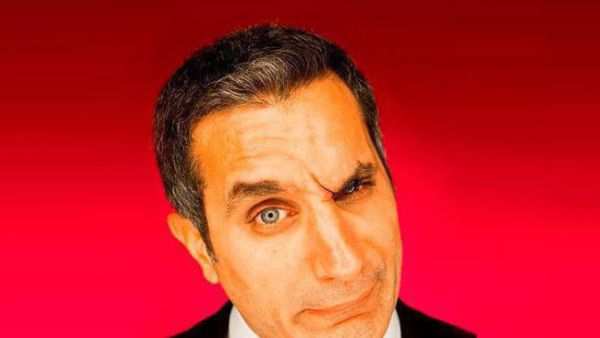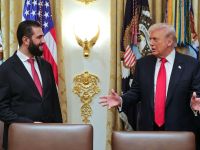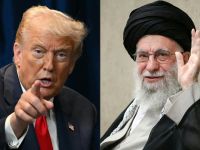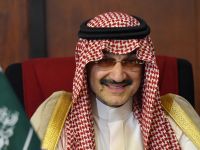Each autumn, the editors of Foreign Policy magazine compile a list of the 100 people they believe have made a measurable difference globally in politics, business, technology, the arts, the sciences and other categories.
Last month, they published the list for 2013, which includes some household figures, such as Edward Snowden, Glen Greenwald, John Kerry, Mark Zukerberg, Chris Hadfield and Pope Francis on the men’s list. Navi Pillay and Malala Yousafzai were some of the most famed who made the female’s list.
With such a wealth of change-makers to chose from this year, the selection committee must have had a difficult time deciding whom to leave off the list.
What really impressed me about this list though is the unusual number of Arabs named, including a Yemeni.
Let’s look at these Arab winners:
Hossam Bahgat and Heba Morayef of Egypt played key roles in reminding Egyptians that their uprising was about the protection of civil liberties and social and economic justice. As the founder and director respectively of the Egyptian Initiative for Personal Rights, they are extremely critical of the Egyptian Army, which they condemned for its utter failure to apply the rule of law and respect citizens’ rights.
Egyptian comedian Bassem Youssef’s popular, satirical news show went on hiatus during the July coup that ousted President Mohamed Morsi, an event Youssef called “no laughing matter.” For the next several months, Youssef went off air. With a nightly audience of roughly 30 million, Youssef has probably been Morsi’s most well-known critic.
Zaha Hadid, an acclaimed Iraqi-born and British-raised, female architect, is responsible for the design of the Heydar Aliyev Center in Baku, Azerbaijan. Hadid’s involvement with the project has drawn criticism because the center is named after the country’s late autocratic leader and was commissioned by his son, both of whom have been accused of committing human rights abuses. To counter her critics, Hadid said, “…if it helps people, if it’s an opera house or a parliament building, something for the masses, I would do it.”
Tamara Chalabi, the daughter of Ahmad Chalabi, the controversial Iraqi exile, resurrected Iraq’s pavilion at the 2013 Venice Biennale—one of the world’s premier art events—after a 30 year absence. She chose Jonathan Watkins, the director of the Ikon Gallery in England, to curate the exhibition. Together, Watkins and Chalabi showcased 11 artists at the event.
Azzam Alwash, who fled Iraq in the late 1970s, returned home in 2003 to help restore his country’s marshlands. He successfully founded the non-profit, Nature Iraq, and used his professional engineering experience to develop a plan to bring water back to areas in need. Local plants and wildlife, as well as the so-called Marsh Arabs, have begun to rebuild their lives. Alwash was awarded the Goldman Environmental Prize (the “Green Oscar”) for his efforts.
Haifaa Al Mansour is a Saudi film director. A well-known website says that a study of Saudi cinema “would essentially begin and end with Haifaa Al Mansour.” As the director of the 2005 documentary, “Women without Shadows,” and the recent, critically acclaimed “Wadjda”—the first feature film shot entirely in Saudi Arabia—Haifaa is creating movies in a closed-off kingdom where women’s freedoms are limited.
Noura Al Kaabi is the CEO of twofour54 (a reference to Abu Dhabi’s geographical coordinates), an Emirati-funded company that offers education and training to a new generation of media producers. Its goal is “to enable the development of world-class Arabic media and entertainment content, by Arabs for Arabs.” After all, Arabic is one of the 10 most spoken languages in the world.
Farea Al-Muslimi is from Yemen, a country rarely in the news for international accolades. Al-Muslimi has emerged as one of the most eloquent critics of U.S. drone strikes in Yemen, which he thinks are boosting support for Al-Qaeda by creating a one-dimensional view of the U. S. He was seen on TV by millions when he testified before a U.S. Senate committee last year.
I went back to Foreign Policy’s pre-Arab Spring list from 2010. There were only three Arabs who resided in the Arab world: Salam Fayyad of Palestine, Mohammad Elbaradei of Egypt and Sheikha Moza of Qatar. These names all occupied positions of power. There was also Tariq Ramadan, an Egyptian living in Switzerland and Mo Ibrahim, a native Sudanese residing in the U.K. This year’s list is remarkable because honorees from the Arab world are ordinary citizens who have taken the initiative to take on those in power, rather than being comprised of those who are in power.
Numbers have clearly doubled. Given that the population of the Arab Middle East is around 350 million, one might expect five or six names on this list. There were nine this year. Whether this is because of greater Arab participation or a subtle change in the selection process, it is something the Arab world can be proud of. It is likely to continue in 2014.
Dr. Qais Ghanem is a retired neurologist, current radio show host, poet and author who resides in Canada. Follow him on Face Book and Twitter at www.twitter.com/@QaisGhanem

Satirical Egyptian comedian Bassem Youssef was one of the 100 people topping the list. (Image: Facebook)







